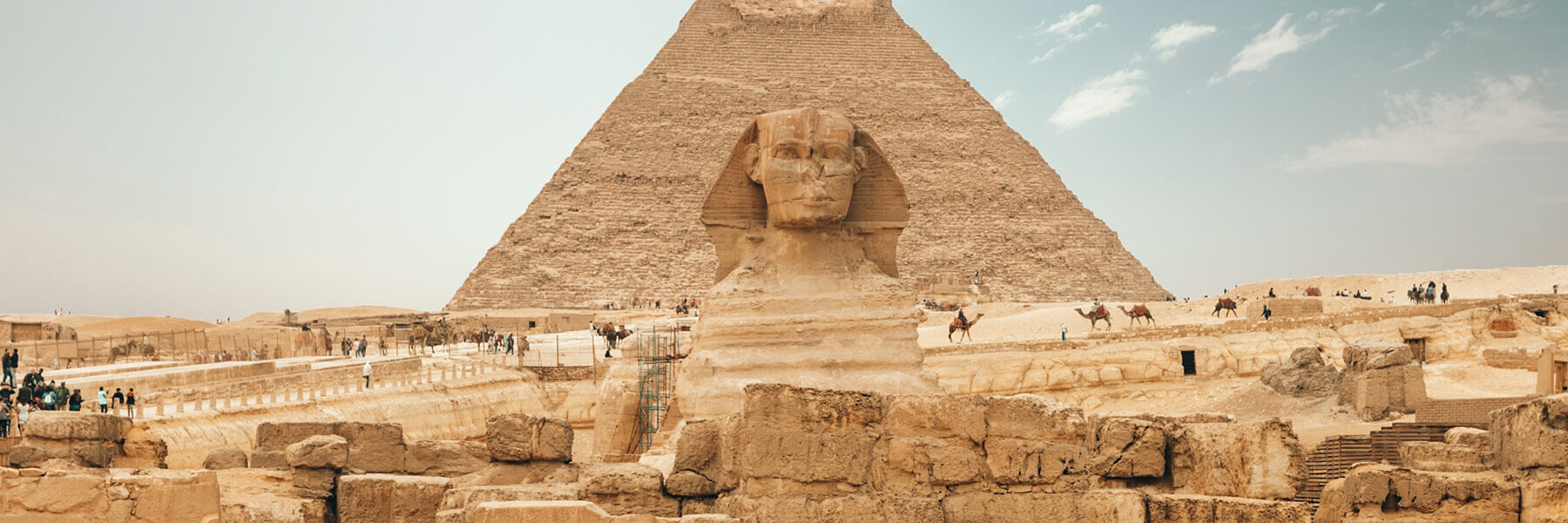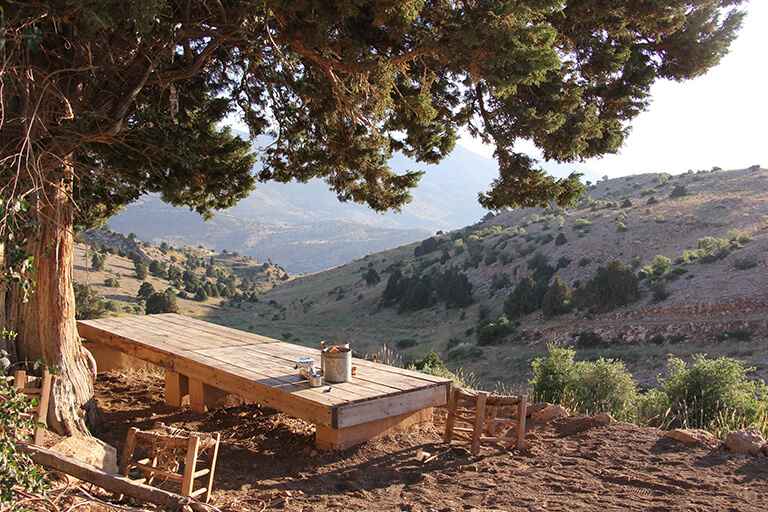The Department of Middle Eastern Languages and Cultures offers a minor in six different tracks: Arabic, Turkish, Persian, Kurdish, Islamic Studies, and Middle Eastern Civilizations.
Requirements
Students must complete a minimum of 15 credit hours within the department.
- Nine of these credit hours must be taken in the MELC department or relevant courses in affiliated departments on the Bloomington campus. No more than six credit hours of foreign-study, transfer, or special credits can be accepted with the consent of the department's undergraduate advisor. COAS Topics courses taught by MELC faculty can count toward the MELC minor.
- For the minor tracks in Arabic, Turkish, Persian and Kurdish, two courses are required in the appropriate Middle Eastern language. This requirement cannot be satisfied through testing. In addition, at least three credit hours are required in a course related in content to the student's primary language, but not a language course per se.
- For the minor tracks in Islamic Studies and Middle Eastern Civilization, students must take 15 credit hours, selected from the broad array of departmental courses.
Each student's course work must be approved by the department.
Current Courses
Listings of MELC classes offered for the past several years through the present day may be found on the IU Schedule of Classes. Descriptions for MELC courses offered between 1998 and the fall semester of 2011 may be found at the IU Course Descriptions website.
The Department of Middle Eastern Languages and Cultures offers a diverse array of undergraduate courses within four main tracks of study:
- Arabic Language and Linguistics
- The Modern Middle East (including history and politics, religion, and media, literature, and the arts)
- Islamic Studies and the Pre-Modern Middle East (including history, religion, literature and the arts)
- The Pre-Islamic Middle East (including Egyptology, the Graeco-Roman Near East and the Byzantine Empire)
Arabic Language and Linguistics (All courses taught in Arabic)
Arabic Language instruction
MELC-A 100 Elementary Arabic I
MELC-A 150 Elementary Arabic II
MELC-A 200 Intermediate Arabic I
MELC-A 250 Intermediate Arabic II
MELC-A 300 Advanced Arabic I
MELC-A 320 Levantine Arabic I
MELC-A 330 Moroccan Arabic I
MELC-A 325 Levantine Arabic II
MELC-A 335 Moroccan Arabic II
MELC-A 340 Egyptian Arabic I
MELC-A 345 Egyptian Arabic II
MELC-A 350 Advanced Arabic II
MELC-A 400 Advanced Arabic III
MELC-A 450 Advanced Arabic IV
MELC-A 455 Advanced Media Arabic
MELC-A 465 Arab Women
MELC-A 475 Minorities in The Middle East
MELC-A 485 Arab Culture Through Music
MELC-A 495 Daily Life in The Arab World
Linguistics and Pedagogy
MELC-M 312 Arabic Grammar
MELC-M 324 Introduction to Arabic Linguistics
MELC-M 329 Arabic Phonetics and Phonology
MELC-M 477 Arabic Pragmatics
MELC-M 488 Arabic Second Language Acquisition
MELC-M 498 Introduction to Arabic Pedagogy
Islamic Studies and Premodern Middle Eastern Culture (All courses taught in English unless otherwise noted)
MELC-M 233 The Golden Age of Islamic Civilization
MELC-M 265 Introduction to Islamic Civilization
MELC-M 365 Islamic Philosophy
MELC-M 370 Koranic Studies (optional discussion section in Arabic)
MELC-M 391 War and Peace in the Islamic Tradition
Modern Middle Eastern Studies (All courses taught in English unless otherwise noted)
MELC-A 465 Arab Women (Taught in Arabic)
MELC-A 475 Minorities in the Middle East (Taught in Arabic)
MELC-A 485 Arab Culture Through Music (Taught in Arabic)
MELC-A 495 Daily Life in the Arab World (Taught in Arabic)
MELC-M 204 Topics in Middle Eastern Culture and Society
MELC-M 206 Modern Arab Culture
MELC-M 214 Multiple Voices of Israeli Society
MELC-M 216 Israeli Inequality in Context
MELC-M 239 US Foreign Policy and the Muslim World
MELC-M 251 Post-Taliban Afghanistan & the War on Terror
MELC-M 268 Military History of the Middle East
MELC-M 303 Issues in Middle Eastern History
MELC-M 304 Issues in Middle Eastern Culture and Society
MELC-M 305 Issues in Middle Eastern Literature
MELC-M 307 Issues in Islamic Studies
MELC-M 308 The Arabic Novel
MELC-M 314 Isis & Terrorism
MELC-M 320 Islam in the Eyes of the West
MELC-M 334 What Is Middle Eastern? Perspectives Gained Through Comparison with Israel
MELC-M 339 Middle Eastern Politics
MELC-M 350 Modern Iran
MELC-M 361 Islamic Feminisms
MELC-M 392 Islam and Modernity
MELC-M 397 Peoples and Cultures of the Middle East
MELC-M 400 Modern Arabic Literature and Culture
Pre-Islamic Middle East (All courses taught in English)
Egyptology
MELC-E 100 Elementary Hieroglyphic Egyptian I
MELC-E 150 Elementary Hieroglyphic Egyptian II
MELC-E 200 Intermediate Middle Egyptian
MELC-E 201 Ancient Egyptian History and Civilization
MELC-E 250 Late Egyptian
MELC-E 300 Demotic Egyptian I
MELC-E 301 Religions of Ancient Egypt
MELC-E 306 Topics in Egyptology
MELC-E 350 Demotic Egyptian II
Classical Near East, Late Antiquity and Byzantium
MELC-M 213 World of Late Antiquity
MELC-M 215 Middle East Before Islam
MELC-M 302 The Greek and Roman Near East
MELC-M 315 Ancient Greek and Near Eastern Religions
MELC-M 347 Rise of Eastern Rome
MELC-M 348 Byzantium
The departmental honors program is designed to provide outstanding students with an in-depth training in Arabic or Persian. Such students are encouraged to enroll in this program in their junior or senior year.
Honors students must complete a minimum of two courses:
- N399 Reading for Honors (3 cr.)
- N499 Honors Thesis (3 cr.)
Students interested in enrolling in N399 should consult the departmental honors advisors and the appropriate language supervisor for Arabic or Persian.
In N399 students will do advanced readings in Arabic or Persian in preparation for work on a research project.
N499 involves a research project leading to the completion of the student's honors thesis. This course should be taken under the supervision of the faculty tutor who guided the student in N399.
General Education at MELC
All IUB undergraduate students who matriculate in or after first summer session of 2011 are required to complete the campuswide GenEd program prior to graduation. This new curriculum is intended to ensure that, through the Common Ground requirements, all undergraduates at IUB develop a host of essential skills in arts and humanities, social and historical studies, natural and mathematical sciences, and world languages and cultures. The GenEd Curriculum also includes Shared Goals of intensive writing experience, information fluency, recognition of diverse perspectives in the United States, and other enriching educational experiences. The Common Ground requirements are the same for all undergraduate students, regardless of their school or academic unit. Shared Goals are implemented by the schools in ways that complement their degree programs. For a list of MELC courses offered to satisfy the General Education requirements, consult the GenEd master list.
Breadth of Inquiry: Arts and Humanities
NELC-N 212 Contemporary Literatures of the Middle East (in English Translation)Breadth of Inquiry: Social and Historical Studies
NELC-N 122 U.S. Foreign Policy and the Muslim WorldNELC-N 208 Muslim Communities in Europe and the U.S.: Transnational IslamNELC-N 220 Muhammad: Life of the ProphetNELC-N 265 Introduction to Islamic CivilizationNELC-N 268 Military History of the Middle EastBreadth of Inquiry: World Languages
NELC-A 100 Elementary Arabic INELC-A 150 Elementary Arabic IINELC-A 160 First-Year ArabicNELC-A 200 Intermediate Arabic INELC-A 250 Intermediate Arabic IIBreadth of Inquiry: World Cultures
NELC-N 204 Topics in Middle Eastern Culture and SocietyNELC-N 212 Contemporary Literatures of the Middle East (in English Translation)NELC-N 220 Muhammad: Life of the ProphetNELC-N 265 Introduction to Islamic CivilizationShould you need more information, consult either of the following:
| DEPARTMENT MEMBER | CONTACT | QUESTIONS REGARDING: |
|---|
Daniel Caner
Associate Professor
Director of Undergraduate Studies | dcaner@iu.edu
Global and International Studies Building 3045
(812) 856-9805 | Undergraduate studies, undergraduate admissions |
Dale Spicer
Undergraduate Academic Advisor | hlsadv@iu.edu
Global and International Studies Building 1020
(812) 855-4719 | Undergraduate advising, scheduling visits to campus for prospective students, undergraduate degree requirements |





